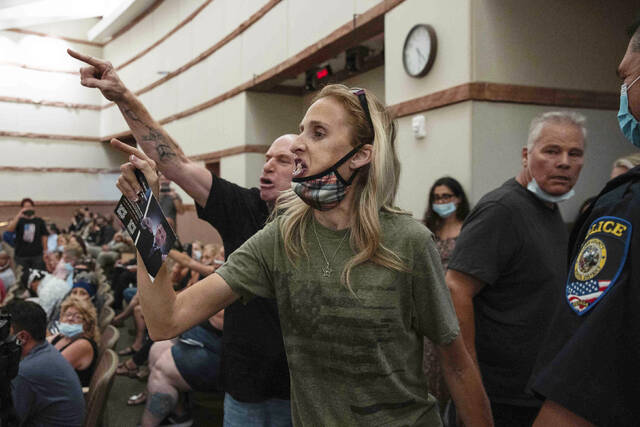https://staging.triblive.com/opinion/joseph-sabino-mistick-school-boards-always-battlegrounds/
Joseph Sabino Mistick: School boards always battlegrounds

“Whatever you do, do not run for the school board!” That’s usually the first advice from veteran politicians when young people ask them how to get into politics. It’s not just the minutiae-filled evening meetings that make it the wrong place to start a career in public service.
School boards have always been the flashpoint for our most difficult social problems, where big national issues are fought out at the local level, often in ways that result in political hand-to-hand combat — the kinds of battles that can crush a budding political career before it begins.
Since the 1830s, when Horace Mann led a movement to establish “common schools” that would provide a free education to all children in Massachusetts, there has been controversy. Since public schools would be open to rich and poor alike, opponents balked at paying for the education of other people’s children.
Access to public education has always caused fights. When immigrants were allowed into the system, many were forced to abandon their cultures, and some were required to adopt Americanized names.
Protestants resisted Catholics. In reaction, Catholics created a parochial school system. And, for generations, gender stereotypes prevented girls from having the same full education opportunities given to boys.
In 1954, the U.S. Supreme Court declared in Brown v. Board of Education that state laws that created separate schools for Black and white children were unconstitutional. As Chief Justice Earl Warren wrote, “We conclude that, in the field of public education, the doctrine of ‘separate but equal’ has no place.”
As communities struggled to integrate their schools, the ugliness of society surfaced. Photos show the contorted hate-filled faces of angry adults trying to block little Black children from entering white schools. When school busing became a way to racially balance schools, communities in both the North and South became battlegrounds.
Now, school boards are battlegrounds again. There are fights over curriculum choices and responses to covid-19. Opposition to critical race theory being taught in public schools — even though most folks would be hard-pressed to define it — have sparked wild board meetings and threats to some board members.
The National School Boards Association has asked the U.S. Justice Department to treat these threats as domestic terrorism, and some of them could be.
But most are more likely frustrated citizens behaving badly, struggling to bend their school board’s decisions to their will.
And the big fight everywhere is over covid-19. Angry parents are demanding that teachers teach in person. Just as stridently, many parents are objecting to vaccination and mask requirements. Decisions to follow the science, making schools as safe as possible, are often opposed because of distorted notions of individual rights.
Whipsawed school board members face conflicting demands from governors, state legislatures, the courts and opportunist politicians. It’s a miracle that there are still people who run for the school board and continue to serve.
In Pennsylvania, school board members serve for free, and they endure a lot. We have a right to carry our petitions to them on all these issues and others, but that comes with a civic duty to act as good citizens.
If we can manage that and get through these latest battles, maybe then we can get back to educating our children.
Copyright ©2026— Trib Total Media, LLC (TribLIVE.com)
